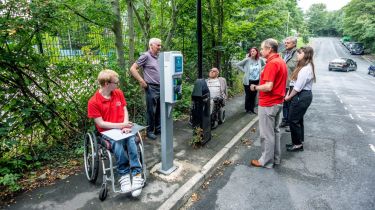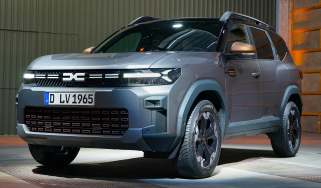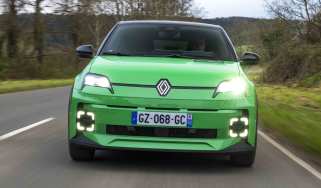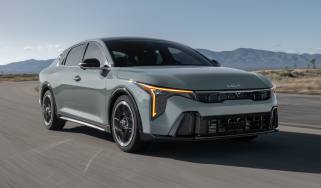Voluntary accessibility standard for electric car chargers is failing, new data shows
According to data from Vauxhall, only 2.3 per cent of on-street EV chargers accommodate disabled drivers

Just 2.3 per cent of the UK’s on-street electric car chargers have been designed to accommodate the needs of disabled people, according to a survey of 223 local councils on behalf of the Vauxhall Electric Streets of Britain campaign.
The results show that only 450 of the 19,546 on-street chargers within council jurisdictions have been “adapted specifically for the considerations of disabled drivers”, in spite of the introduction of the PAS 1899 accessibility standard in 2022. Back then, the government and the charge point industry together insisted PAS 1899 would mark a turning point in the provision of disabled access.
Now, 18 months on, the reality is that just 238 (1.2 per cent) of public chargers identified in the survey conform to the government-backed voluntary guidance, and only 105 (0.5 per cent) of the over 19,000 chargers identified in the survey were located in a disabled parking bay. While London councils have installed over 60 per cent of the nation’s on-street chargers, none are reported as having been adapted for disabled users, and only 12 of the 11,747 on-street chargers found across the capital are reportedly situated in disabled parking bays.
Auto Express first exposed the inadequacies of the PAS 1899 draft regulations in May 2022. The standards were put together by the BSI in collaboration with the government's Office for Zero Emission Vehicles, the UK charge point industry and the Motability charity.
We campaigned vigorously for improvements and, following our intervention, PAS 1899 finally emerged with new limits to the maximum forces that should be required by drivers to lift and manoeuvre charge cables if a charge point is to be deemed ‘accessible’ under the guidance.
However, the government resisted calls from Auto Express and others for mandatory regulation, insisting the voluntary approach would be sufficient to improve the dire outlook for disabled EV users. This latest data suggests the government’s confidence was misplaced, but EV charge infrastructure trade body ChargeUK last week refused to comment on whether the lack of progress on accessible charging indicates that mandatory regulation is required. A spokesman told Auto Express only that: “ChargeUK is pleased to be working with the government and other relevant stakeholders as a member of the BSI’s PAS 1899 Review, to ensure that as the transition to EVs progresses, the guidelines are able to deliver our shared goal of nationwide infrastructure that supports everyone.”
Currently there are over 16 million people living in the UK that are identified as ‘disabled’, with Motability estimating that 1.35 million disabled drivers will be relying on public EV charging infrastructure by 2035.
James Taylor, managing director of Vauxhall, says that “accessibility is an area of electric vehicle charging infrastructure which requires immediate attention.”
Auto Express started campaigning for the country’s EV charging network to be accessible to disabled users - in-line with 2010’s UK Equality Act - back in 2021. We were supported by TV presenter, Ade Adepitan, who said: “Disabled people can shout until they’re blue in the face, but unfortunately we’re not the majority and people tend to forget about us when they’re planning. It’s such an obvious oversight.”
The dismal state of affairs for disabled drivers means that leading lobby group Disability Rights UK is among those calling for accessibility standards to be made mandatory.
“We have been leading on the effects of climate change on the disabled community for three years and still the opportunities for us to be part of a pushback against global warming are being restricted by a lack of inclusive planning and a seat at the table when policy and design are discussed,” policy and campaigns officer Dan White told Auto Express.
“Accessibility standards must be enshrined in law. As more disabled drivers switch to electric vehicles, they are finding their freedom to drive as restricted as their current basic human rights as many charging points cannot be accessed.”
“We have already seen many blue badge bays removed for charging points. It surely makes logical and ethical sense to have a design standard of charger that anyone can use, designed by all who would need to use it? Otherwise, a mass retrofit is on the cards and disabled drivers are further stripped of their rights to travel.”
Click here for our list of the best electric cars...








